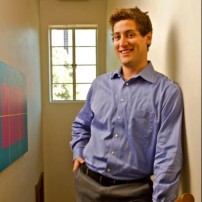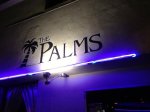 My good friend and fellow Feminism and Religion Contributor Marie Cartier’s forthcoming book, Baby You Are My Religion: Women, Gay Bars, and Theology Before Stonewall argues
My good friend and fellow Feminism and Religion Contributor Marie Cartier’s forthcoming book, Baby You Are My Religion: Women, Gay Bars, and Theology Before Stonewall argues that American butch-femme bar culture of the mid-20th Century should be interpreted as a sacred space. Specifically, gay bars served as both communal and spiritual gathering spaces where butch-femme women were able to discover and explore not only their sexuality but also their spirituality. An opus of an academic accomplishment based off of the amount of in-depth interviews she conducted, Professor Cartier explores lived religion in an area that has become all too common within the LGBTQ community: the bar
that American butch-femme bar culture of the mid-20th Century should be interpreted as a sacred space. Specifically, gay bars served as both communal and spiritual gathering spaces where butch-femme women were able to discover and explore not only their sexuality but also their spirituality. An opus of an academic accomplishment based off of the amount of in-depth interviews she conducted, Professor Cartier explores lived religion in an area that has become all too common within the LGBTQ community: the bar

The Palms, the last local and only lesbian bar to be found in city of West Hollywood, CA is closing its doors and I can’t help but wonder where its patrons or parishioners will now go?
With its closing, specifically at the end of L.A. Pride weekend, where thousands of LGBTQ individuals flock to West Hollywood to celebrate what makes our community truly unique, one has to begin to wonder where, if Professor Cartier’s thesis holds true, God has gone? 
Does God exist within the LGBTQ community anymore or has the community itself abandoned God for all-night raves, dance clubs, alcohol, and hypersexualized and over commoditized fetishized forms of femininity and masculinity? Oftentimes, I find myself answering yes to the above questions. After surviving hate crime after hate crime and endless batches of newly elected conservative politicians hell bent on ignoring medical and social epidemic plaguing the very country they were elected to serve and protect, why would a community, oftentimes linked to sin itself, believe in a holy entity?
The overarching question at hand in regards to the closing of the Palms is not whether or not there is a space for God in the LGBTQ community anymore but rather what role does misogyny play within the very community sworn to respect and take pride in the very differences that makes itself truly unique? Scholar Ann D. Braude credits the success of religion to the active and oftentimes overwhelming support of women. With 40% of West Hollywood’s 35,000 residents identifying as gay but only 3% identifying as lesbians one can deduce that the closing of the Palms signifies the growing divide between the LGBTQ community and spirituality as more women leave the proverbial “church spaces” that they have created.
The success of the LGBTQ community cannot be tied exclusively to gay men but also the struggles and successes of the lesbian community. Similar to the various ways in which women helped religious communities boom throughout the 18th, 19th, and 20th centuries in America, the lesbian community, as a whole, is integral to not only the successes of the LGBTQ community and the very cities and spaces they have helped to found.
With the exodus of women, so comes the migration of spirituality itself and one can only wonder, whether or not, there will ever be any room or spaces left for women where more individual are becoming continually transfixed by Adonises and abdominal muscles.
If Professor Cartier’s thesis does hold true, we have to begin to wonder if women are fleeing and God is following them, where might they be looking for a new lease?
John Erickson is a doctoral student in American Religious History at Claremont Graduate University. His research interests involve an interdisciplinary approach and are influenced by his time as the director of a women’s center and active member in the GLBTQ and women’s rights movements. His work is inspired by the intersectionality of feminism, queer identity, and religious political and cultural rhetoric. He is the author of the blog, From Wisconsin, with Love and can be followed on Twitter at@jerickson85.


John-i love yr post. As you know my research focused almost exclusively on pre-stonewall community…or the community that went to the gay girl bar prior to circa 1975.the question specifically for spaces such as the palms is how did spaces such as this exist post stonewall into feminism of the 70s and why did they exist well into the millenium..did they serve the same function as pre stonewall space when the bar was the only space…post stonewalll there are many many spaces. And since they did exist for so long post stonewall why are so many of these spaces…women’s bookstores, bars, etc. closing now?
LikeLike
I just wonder where are these “spaces” now? Do they even exist? And if so, what forms have they taken on? Technopaganism?
LikeLike
The lesbian movement helped found women’s spirituality movement and the Dianic craft among other things. We moved out of the bars and into causes. Bars were the first step into the broad lesbian community outside the bars which is a much healthier place.
LikeLike
From the bars and into the streets You are very right!
LikeLike
When huge components of the gay community were closeted or underground, the gay bars served as the meeting places for social and religious life. With the unprecedented acceptance of gays in this decade, and the overwhelming numbers of gays now coming out, that refuge is no longer needed. We are much freer now to find our soul mates within a religious framework, i.e., some type of church. Yes, elfkat, we are now healthier, more committed, more involved with the world. No matter what our religious inclination, we can now participate wholly. I feel so blessed to be living in this era.
LikeLike
We’ve moved other places where we can talk in private and not be invaded by males. I really thrive in lesbian only space, and don’t like sharing that space with men or with male to trans. Lesbians have a unique culture, and lots of groups want to co-opt it or worse yet, try to take male sexuality and bring it into lesbian spaces. I’ve had several friends say they are nervous about using the women’s restroom at the gay and lesbian center, because drag queens went in, and large men wearing dresses were threatening.
Now that the Palms is closing, other lesbian spaces are opening, and there is a real fear that we won’t be able to gather in private and work on our issues, without getting co-opted by every cause on earth except the cause of lesbian nation.
LikeLike
Gay men have gotten in the way of lesbian feminism. I think we need to move on, and the men need to leave us alone. We don’t get liberation from a group that just takes over and colonizes everything it touches. Even the Dyke march was overrun by obnoxious men making offensive comments about women. It was awful to see gangs of men coming into lesbian space. It creeped me out.
LikeLike
From what I gather from this comment TW is that you live close to or near West Hollywood and were at the Dyke March. I would have loved to have met you and talked about this post I wrote at length!
LikeLike
I feel blessed too but I still see a divide that is only growing wider at times when people just give up on aspects of spirituality within the younger LGBT communities due to what they have or are going through.
LikeLike
I don’t want to have anything to do with malestream churches, but I do feel fully alive within the lesbian worlds we have created for one another, and treasure the time for lesbians to be with one another. Most lesbians my age don’t like gay male invasion of all the spaces out there, and find West Hollywood not hospitable to this sort of life. Lesbians need to constantly stake out territory that is male free. We don’t get anywhere with the ratios that exist in WeHo. One of the main reasons I got a house, was so I could have women only events in private land, and women need a lot more private terrority. It’s just essential to the survival of lesbian power and intellectual agency.
LikeLike